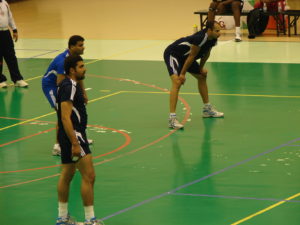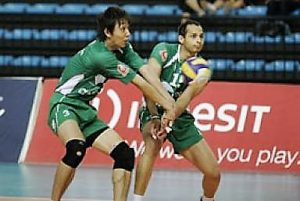They both are important. I would say instead of asking what type of goals are more important, ask when it’s appropriate to have outcome-oriented goals and when process-oriented goals are better.
Outcome goals
Outcome goals are your big why’s. These are end goals such as becoming an Olympian, a doctor, or an astronaut. These are your craziest dreams, your biggest aspirations. These goals have to be attainable but ambitious enough to take you out of your comfort zone. If your outcome-oriented goals aren’t big enough, you will lose interest. The same happens if you set outcome-oriented goals way out of your reach.
When settling an outcome-oriented goal, you need to take your time. This is something very personal. Even though family, friends, and mentors could give you ideas for you to find your big why’s, it’s your job to determine those outcome-oriented goals.
Your environment also plays a huge role in your outcome goals. When I was 11 years old, I was obsessed with baseball. My brother was a local superstar and I wanted to be like him. Then, I dreamed of becoming an MLB baseball player. But I soon lost motivation because of my environment and lack of support. Then, at age of 14, I decided I wanted to become an Olympian. That was my big – outcome goal.
After I decided I was going to be an Olympian, I started the process of finding the right sport. I practiced baseball, soccer, basketball before accidentally I started playing volleyball.
See, when you establish your big goal, God will help you find the path.
It turns out that, the same year I started playing volleyball, I represented my state in the nationals, and was already practicing with the youth Venezuelan national team. At that moment, I decided that Volleyball was the vehicle for me to make it to the Olympics. After that, I started deciding the path – the process-oriented goals.
Process-oriented goals
The first thing I did was to find a mentor, a person that walked the same path I was about to take. I was fortunate to find a person pretty soon because the Venezuelan Head Coach was an Olympian.
David Suarez was a Montreal 76 Olympian, he won the bronze medal representing Cuban, he was my first mentor, he helped me find my path and guided me through the years. When I needed advice or a kick in my but, he was always there.
The biggest advice he gave me was in my first year in the national team when I was dealing with several family issues that were causing unfair stress to a 15-year-old kid.
Suarez one day asked me why I was performing poorly on practice and I explained to him that I was sad because of my family situation. Suarez told me, “I know it’s hard your situation but, if you want to help your family, the only way you can do it it’s becoming a high-performance player”. From the moment Coach David said that I could clearly see the path I needed to take, the roadmap to making my dreams a reality. I started seeing myself playing at the international tournaments, playing pro leagues, and representing my country in the Olympics.
I did not only started visualizing my path, but I also started strategizing (created process-oriented goals). By that point, I was very aware of my strengths and my weaknesses. Then, I decided to deliberately improve or learn what was needed and separating in the things I was good at. Once I was clear about my process-oriented goals, I started walking the path that take me to my final destination – The Beijing 2008 Olympics.
What are your goals?
Every athlete has a different path, we all came from different backgrounds. It’s your job to find yours. To do that, you have to refer to your big why. Your purpose for pursuing an elite athlete endeavor is your main/big result-oriented goal. Every other goal must gravitate around the true, ultimate purpose for what you decided to play at a high level in the first place.
Once you are clear on your big why you start seeing the sub-result-oriented goals, then, you have to start establishing process-oriented goals for each specific outcome-oriented goal. That’s how it works.
Let’s say your big why is to make it to a D1 college. Depending on your age, you must establish a series of sub-result-oriented goals that will take you to your big why.
Let’s say for example that you are a middle schooler and are playing in a local team. Your result-oriented goals at this point are to learn as much as you can about the game, also develop your skills and athleticism. To reach these goals, you have to establish a strategy (process-oriented goals). You have to enroll in a local competitive league, you sign up for a Long-Term Development Strength and Conditioning Program, you have to attend camps, clinics and do private classes to deliberately develop your skills.
This process will not only make you reach your result-oriented goals, but, by following it, you are learning to walk the high-performance path, and will prepare you for the next set of result-oriented goals.
Following the same example, let’s say that now you are a high schooler playing in a competitive-traveling team. In this stage, your goal is to become a starting player, rank high (top 10-20) in your governing body organization, win X number of tournaments, make X time if you do track and field or swimming, for example, lift X amount of weight for a weightlifter, earning a college scholarship, and so on.
Then, after you establish your result-oriented goal, you create your process-oriented goals for reaching that goal. The process might include being organized with your time, develop the discipline to cope with your growing daily routine (school, homework, practice, meals, rest, games…), focusing and honing one position, researching colleges, sending emails, creating a college profile, attending college camps, etc.
As I said, there’s no all-size-fits-one path or road map for elite athletes. You have to assess yourself to see your current situation. That’s your starting point, then you have to see what resources you have – skills, talents, support, so you can clearly see your destination and then start your journey.
This roadmap is very important. Without a pipeline, you’ll end up burned out, heating the sport, and frustrated. Before you enroll in a high-performance endeavor, you have to beware of the immense amount of time, effort, tears, and sweat that takes to become an elite athlete. After you see the whole picture then you can decide whether it’s worthy to take this path or not.
If you want to learn about creating your elite athlete path, let me know how I can help you understand the step you need to take, as well as the skills you have to learn to reach the top of the mountain.
I will see you at the top:)
Blessings,
Coach Carlos.



